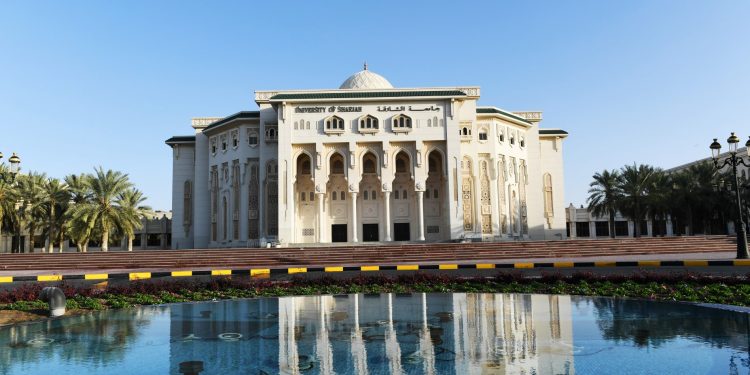Under the patronage of His Highness Sheikh Dr. Sultan bin Muhammad Al Qasimi, Member of the Supreme Council, Ruler of Sharjah, President of the University of Sharjah.
The Sharjah International Foundation for the History of Science for Arabs and Muslims at the University of Sharjah will hold “virtually” the fourth international conference in the history of science for Arabs and Muslims, titled “Scientific legacy and its contemporary effects” during the period from 4 to 6 April next in cooperation with the universities of Cologne, Germany, and King Abdulaziz In the Kingdom of Saudi Arabia, with the participation of a group of scholars, researchers, and directors of universities, research centers, international libraries and museums from various countries of the world.
Professor Hamid Majoul Al-Nuaimi, Director of the University of Sharjah, President of the Conference, affirmed the keenness of the Sharjah International Foundation for the History of Science for Arabs and Muslims, to hold this conference periodically, and said that the conference, in its fourth session, aims to present a clear and ambitious vision for the future of studies related to the history of science for Arabs and Muslims, in addition to Presenting the leading international experiences in serving the Arab and Islamic scientific heritage and working to consolidate the status of the Sharjah International Foundation for the History of Science among Arabs and Muslims as a destination to attract scholars and those interested in the history of science among Arabs and Muslims from different parts of the world, and to define the importance of the role that the Foundation plays in spreading the culture of dialogue and to be a platform for exchange Experiences in order to highlight the role of Arab and Muslim scholars in the scientific progress that the world is witnessing.
Dr. Hussein Muhammad Al Mahdi, Chairman of the Conference Organizing Committee, indicated that there are many important and varied axes that will be discussed within the conference sessions and activities, including highlighting the features and secrets of the flourishing of the Arab Islamic civilization in its golden ages, represented in identifying creative environmental specifications and identifying creative means and innovations in the era of prosperity. Arab and Islamic civilization among the early Arab and Muslim scholars, and the opportunities available to Arab and Muslim scholars and the challenges they face between yesterday and today.
He explained that the second axis deals with the impact of technologies in analyzing, understanding and studying the Arab-Islamic heritage, including the revival of the Arab and Islamic scientific heritage using modern technical means, the technique of Islamic architecture and its decorative arts. The impact of the Arab-Islamic scientific heritage on the cultures of contemporary societies and its role in the scientific and technological progress that the world is witnessing will also be discussed. right Now.
Dr. Al-Mahdi indicated that more than 200 research papers have been received, 120 of whom have been accepted after reviewing and scientific evaluation of these researches in accordance with common standards. These research will be presented and discussed during the days of the conference, which is expected to be attended by scientists and researchers from more than 30 Arab and Islamic countries and other countries from all parts of the country. the world.
Research papers and lectures discuss topics among the conference’s themes in medicine in the Islamic civilization up to the fourth century AH, ophthalmology, internal diseases and childhood diseases, ethical standards in the pharmaceutical industry within the Islamic civilization, innovations of Islamic law scholars in experimental sciences, and Arab Muslim contributions to algebra during The ninth century AH / AD 15th century, and the efforts of Muslim scholars in geographical research and architecture in the Andalusian school.
The conference will also discuss pioneering experiences in diagnosing challenges and opportunities to revive and preserve the Arab and Islamic scientific heritage, including the Islamic heritage in the architectural arts through activating the movement of translation of the literature and literature of early Muslim scholars into multiple languages related to the Arab and Islamic scientific heritage, as well as allocating a focus to discuss the emergence of medical and health sciences. And its development among Arabs and Muslims, and the role of Arab scientists in the field of applied sciences and engineering in the development of science and technology, including the use of nanotechnology and others in enriching scientific, technical and technological progress.




![The Top & Most Popular Seafood Bucket Restaurants in Dubai for you [Never Miss]](https://uae24x7.com/wp-content/uploads/2020/09/8-seafood-in-a-bucket-scaled-e1600739237403.jpg)
![Procedures for Renewing the Driving License in Abu Dhabi [3 Simple Steps]](https://uae24x7.com/wp-content/uploads/2020/07/Capture-9-e1595666454466.jpg)





